Opening of the Round Table
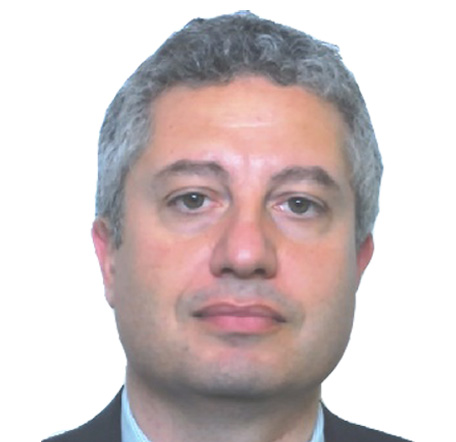
Nicola Daniele Cangemi
Head of the Department for Human Rights, Justice and Legal Cooperation Standard-setting activities, DGI, Council of Europe
Nicola Daniele Cangemi was born in Messina, Italy, on 6 December 1972. Married, two children.
Since September 2021 he is the Head of the Department for Human Rights, Justice and Legal Cooperation Standard-setting activities at the Directorate General of Human Rights and Rule of Law of the Council of Europe. He holds a degree in Political Science from the LUISS University, Rome, and a Master’s degree from the College of Europe, Bruges.
Working for the Council of Europe since 2001, he served as legal advisor, as Deputy Head of the Counter-terrorism task force, and as Head of the Human Rights Law and Policy Division, at the time of the elaboration of the ground-breaking Committee of Ministers’ recommendations on the promotion of human rights of older persons on combating discrimination on grounds of sexual orientation or gender identity, and of the working party which elaborated the draft legal instruments for the accession of the EU to the European Convention on Human Rights. Between 2014 and September 2021 he worked for the Directorate General of Democracy, first as Special Coordinator and then as Head of the Human Dignity and Gender Equality Department, supervising the Council of Europe work in the areas of Gender Equality, Violence against Women and Trafficking in Human Beings.
In his current functions, he supervises the Organisation’s standard setting work in the areas of Human Rights, Justice and Legal Cooperation, including the secretariat of the Steering Committee for Human Rights, of the European Committee of Legal Cooperation and of the Consultative Councils for Judges and Prosecutors.
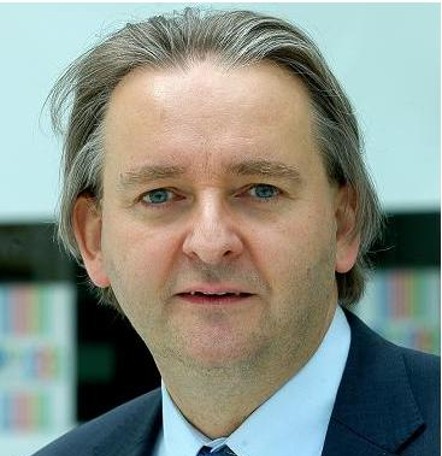
Dirk Pilat
Deputy Director, Directorate for Science, Technology and Innovation at OECD
Dirk Pilat, a Dutch national, is Deputy Director of the OECD Directorate for Science, Technology and Innovation. He helps oversee OECD’s work on science and technology, innovation, productivity and business dynamics, digital economy policy, consumer policy and industry policies.
Dirk joined the OECD in February 1994 and has worked on many policy issues since then, including innovation, the role of digital technologies for economic growth, climate change and environmental innovation, labour markets, regulatory reform, global value chains, productivity and entrepreneurship, as well as health innovation. He is currently helping to coordinate the OECD's Going Digital project, which is a multidisciplinary, cross-cutting initiative that aims to help policymakers better understand the digital transformation that is taking place and help develop recommendations for pro-active policies that will help to drive greater growth and societal well-being.
Dirk was responsible for the OECD’s Committee for Scientific and Technological Policy from 2006 to January 2009, and for the Committee on Industry, Innovation and Entrepreneurship from February 2009 to December 2012.
Before joining the OECD, he was a researcher at the University of Groningen, where he also earned his PhD in Economics, working primarily on productivity and economic growth.
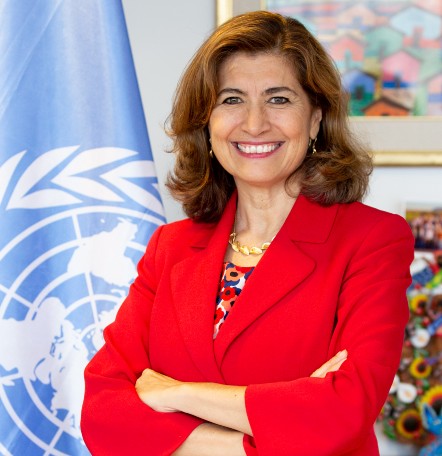
Gabriela Ramos
Assistant Director-General for the Social and Human Sciences of UNESCO
Gabriela Ramos is the Assistant Director-General for the Social and Human Sciences of UNESCO, where she oversees the contributions of the institution to build inclusive and peaceful societies. Her agenda includes the achievement of social inclusion and gender equality, advancing youth development; promotion of values through sports; anti-racism and anti-discriminatory agenda and ethics of artificial intelligence. Her appointment at UNESCO allows her to continue supporting an agenda of inclusive growth, and the respect of human rights and human dignity.
Prior to this position, Ms. Ramos served as the Chief of Staff and Sherpa to the G20/G7/APEC in the OECD, contributing to the global agenda as well as leading the OECD's
- New Approaches to Economic Challenges,
- Inclusive Growth Initiative,
- Gender Strategy and
- the work on well-being and children.
In 2019, she launched the Business for Inclusive Growth (B4IG) platform, bringing together 40 major multinational companies committed to reducing inequalities. Previously, she was Director of the OECD Office in Mexico and Latin America and a member of the Mexican foreign service.
In 2013, she was decorated with the Ordre du Merit by the President of France. Her work to promote gender equality earned her the 2017 and 2018 Forbes Excellence award as well as being included as part of Apolitical’s 100 Most Influential People in Gender Policy in both 2018 and 2019. She is a Fulbright and Ford McArthur fellow, and a graduate of the Ibero-American University of Mexico City. She is member of
- the board of the Paris Peace Forum,
- UNICEF Advisory Board,
- Steering Group of the International Gender Champions Paris Hub,
- Multi-Stakeholder Council to the Global Solutions Initiative,
- Lancet Commission on Gender-Based Violence and Maltreatment of Young People, and
- Lancet Commission on COVID-19.
Session I
Introduction to the human rights issues raised by the applications of neurotechnologies in the biomedical field
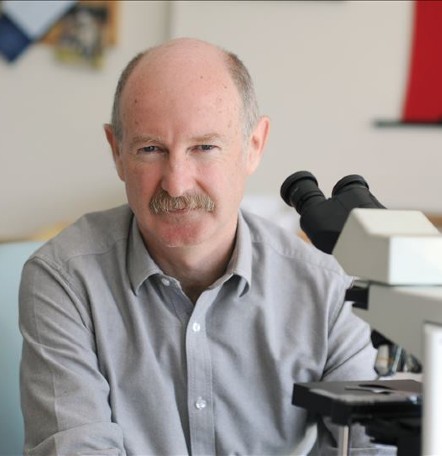
Rafael Yuste
Professor of Biological Sciences and Director of the Neurotechnology Center, Columbia University,
Rafael Yuste, M.D., Ph.D, is a neuroscientist that studies the cerebral cortex at Columbia University, where he is Professor of Biological Sciences and Director of the Neurotechnology Center. He led the researchers who proposed the US BRAIN Initiative, and coordinated the launch of the International BRAIN Initiative. He also led the “Morningside” group of 25 researchers and clinicians who proposed novel human rights (“Neurorights”) to protect citizens from neurotechnologies. He has obtained awards for his research from the Mayor of New York City, the Society for Neuroscience and the Director of the U.S. National Institutes of Health. He shared the Tällberg/Eliasson Global Leadership Prize in 2018 for his science and ethics advocacy work.
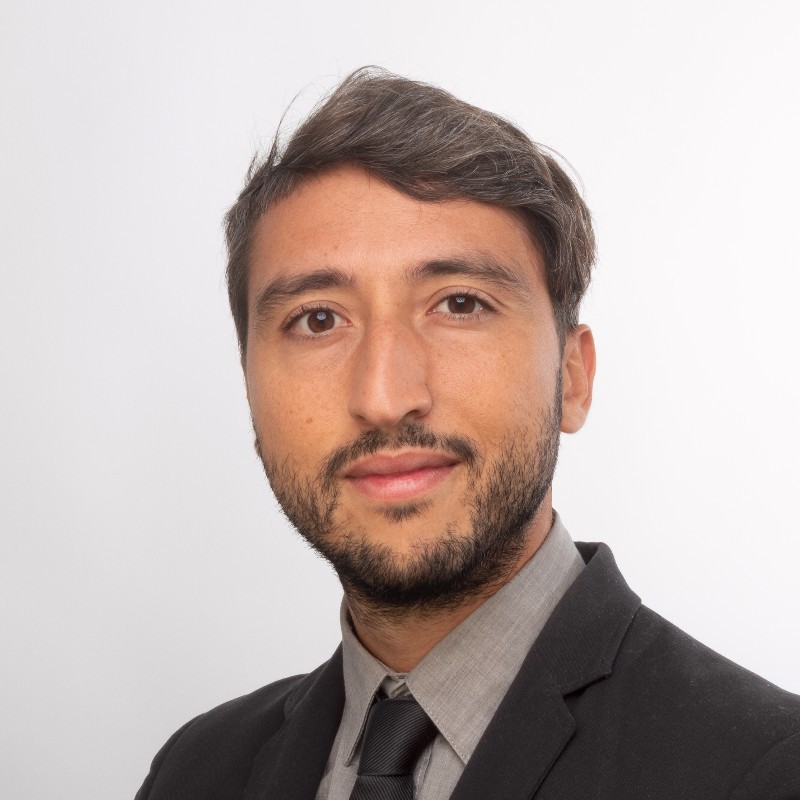
Marcello Ienca
Principal Investigator and Head of the Intelligent Systems Ethics unit, Swiss Federal Institute of Technology in Lausanne (EPFL), Switzerland.
Dr. Marcello Ienca is a Principal Investigator at the College of Humanities at EPFL where he leads the ERA-NET funded Intelligent Systems Ethics research unit. He is also an affiliate member of the Health Ethics and Policy unit, Department of Health Sciences and Technology, and an ordinary member of the Competence for Rehabilitation Engineering & Science at ETH Zurich, Switzerland. Dr. Ienca's scholarship focuses on the ethical, legal, social and policy implications of emerging technologies. In particular, he investigates the broader implications of new (and often converging) sociotechnical trends such as Artificial Intelligence (AI), big data, digital epidemiology, robotics, assisted living, digital health, social media, dual use, and neurotechnology. He and his team use both theoretical and empirical methods to explore the requirements for responsible innovation, ethically-aligned technology design, user-centred design, and human-centered technology assessment. Dr. Ienca is actively involved in science and technology policy within international organizations and professional societies. In particular, he is a member of the Organisation for Economic Co-operation and Development’s (OECD) Steering Group on Neurotechnology and the representative of the Swiss Delegation (appointed by the Swiss State Secretariat for Education, Research and Innovation, SERI). He has also been invited to serve as an expert advisor to the Council of Europe’s Ad Hoc Committee on Artificial Intelligence and the Bioethics Committee. Dr. Ienca has written reports for the OECD, the Council of Europe, and the European Parliament's Panel for the Future of Science and Technology. He is a Member of the Board of Directors of the Italian Neuroethics Society (SINe), a former Board Member and current member of the Nominating Committee of the International Neuroethics Society (INS). Ienca is a member of the Editorial Board of several academic journals such as Neuroethics, Bioethica Forum, Frontiers in Neuroergonomics and Frontiers in Genetics. Ienca has received several awards for social responsibility in science and technology such as the Vontobel Award for Ageing Research (Switzerland), the Prize Pato de Carvalho (Portugal), the Sonia Lupien Award (Canada), the Paul Schotsmans Prize from the European Association of Centres of Medical Ethics (EACME) and the Data Privacy Plaque of Honour, awarded by the Italian Data Protection Authority. He has authored one monograph, several edited volumes, 60 scientific articles in peer-review journals, several book chapters and is a frequent contributor to Scientific American. His research was featured in academic journals such as Neuron, Nature Biotechnology, Nature Machine Intelligence, Nature Medicine and media outlets such as Nature, The New Yorker, The Guardian, The Times, Die Welt, The Independent, the Financial Times and others.
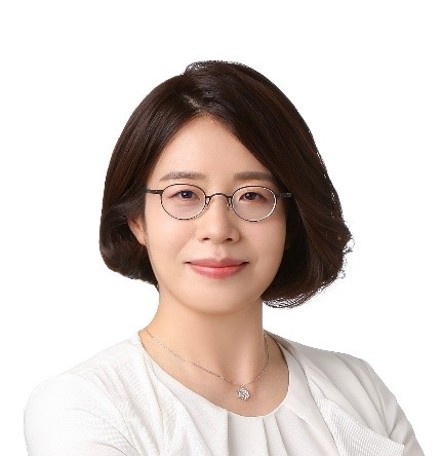
Myong Hwa Lee
Chief Director, R&D Strategy Research Division, Science and Technology Policy Institute (STEPI), South Korea
Myong Hwa Lee is a research fellow and the Chief Director of R&D Strategy Research Division at the Science and Technology Policy Institute (STEPI) in South Korea. She has held various positions, including being a former member of the Biomedical Committee of the Presidential Advisory Council on Science and Technology (PACST), a former member of the Biotechnology Special Committee of PACST, and a former member of the Healthcare Special Committee of the Presidential Committee on the Fourth Industrial Revolution. As a policy researcher, her research interests center around the regulation of biotechnology and the biomedical ecosystem, the national R&D system, and STI policy evaluation. She also holds a Ph.D. in Political Science from Northern Illinois University in the U.S.A.
Session II
Areas of ethical and legal significance:
examples of applications in different fields
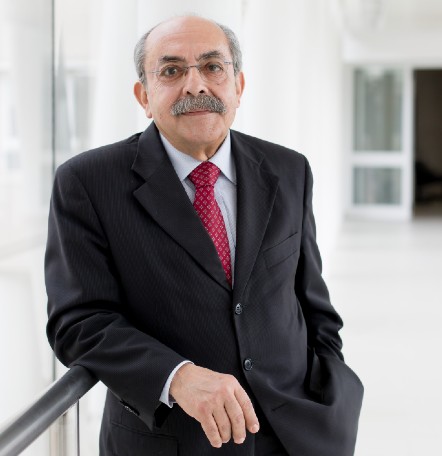
Carlo Caltagirone
Neurologist and neuroscientist, Scientific Director at IRCCS Santa Lucia Foundation, Italy
Prof. Carlo Caltagirone, Neurologist and neuroscientist, Scientific Director at IRCCS Santa Lucia Foundation. Author of over 900 publications in international peer rewied journals in Clinical Neurology, Clinical Neuropsychology and Behavioral Therapy and Neurorehabilitation. He is listed in the top 10 of Italian neuroscientists and has an h-index of over 110 points.
He is a member of numerous national and international scientific societies. Vice President of AIP (Associazione Italiana di Psychogeriatrics) member of Italian Society of Neurology Board of Directors, former President of SINDEM (Italian Society of Neurology for the Dementias), former President of SINEG (Società Italiana di Neurogeriatria), former president of SIRAS (Italian Society of Highly Specialized Rehabilitation).
Since November 1994 he has been Full Professor of Neurology at the School of Medicine of the University of Rome “Tor Vergata”. He has been President of the degree program for Speech Therapists of the University of Rome “Tor Vergata”, which is located at IRCCS Santa Lucia.
Since 2013 he is member of the National Committee for Bioethics of the Presidency of the Council of Ministers. Since October 2014 he is Director of Research Laboratories of Experimental Neurosciences at the CERC - European Centre for Brain Research.
Appointed in 2001, he currently holds the position of Scientific Director at IRCCS Santa Lucia Foundation.
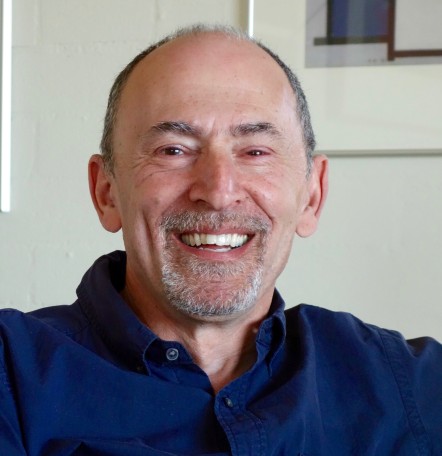
Peter Reiner
Professor of Neuroethics, Department of Psychiatry, University of British Columbia, Canada
Peter Reiner is Professor of Neuroethics in the Department of Psychiatry at the University of British Columbia, a member of the Centre for Artificial Intelligence Decision-making and Action, and founder of the Neuroethics Collective, a virtual think tank of scholars who share an interest in issues of neuroethical import.
The author of over 100 peer-reviewed publications including papers in Science, Nature and PNAS, Professor Reiner began his career as a member of the Kinsmen Laboratory of Neurological Research at UBC where he was the inaugural holder of the Louise Brown Chair in Neuroscience. He went on to become founder, President and CEO of Active Pass Pharmaceuticals, and in 2007 co-founded the National Core for Neuroethics.
A champion of applying rigorous quantitative methods to neuroethical issues, Professor Reiner is frequently quoted in the media and has testified before the Presidential Commission for the Study of Bioethical Issues. His current research is supported by a grant from the SSHRC entitled The Mind in Your Pocket.
Session III
What are the Human Rights at stake?
Privacy at stake
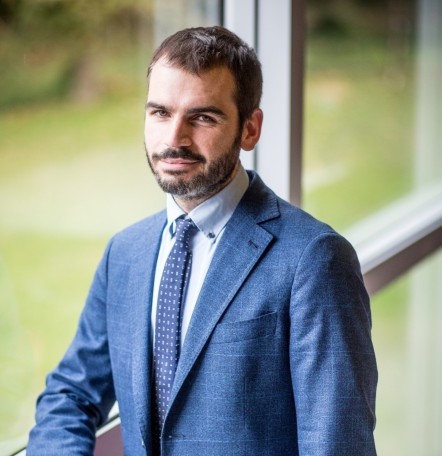
Gianclaudio Malgieri
Associate Professor of Law at EDHEC Augmented Law Institute, France
Gianclaudio Malgieri is an Associate Professor of Law and Technology at the EDHEC Business School in Lille (France), where he conducts research at the Augmented Law Institute and teaches Data Protection Law, AI regulation, Digital Law. He is also incoming Co-Director of the Brussels Privacy Hub; Editorial Board Member of Computer Law and Security Review and External Evaluator of Research Projects at the European Commission.
He has authored more than 50 publications including articles in leading international academic reviews. He published in English, French, and Italian. His works have been cited by, inter alia, the European Commission, the Council of Europe, the World Economic Forum, the Canadian Government, and the Canadian Data Protection Authority, but also by top newspapers (New York Times, Le Monde, La Tribune, France Culture, Corriere della Sera, ilSole24Ore, La Repubblica). In the 2020 he was the only EU scholar to receive the FPF Privacy for Policymaker Paper Award.
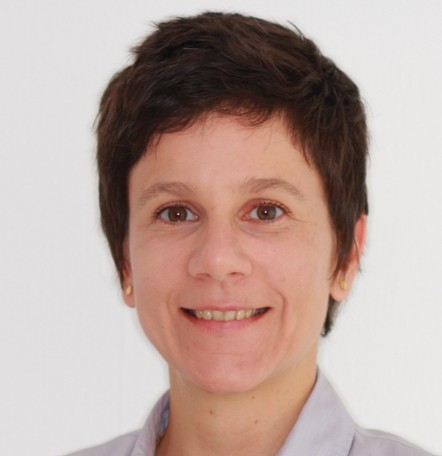
Fruszina Molnár-Gábor
Research group leader at the Heidelberg Academy of Sciences and Humanities, Germany
Fruzsina Molnár-Gábor, PhD, is a research group leader at the Heidelberg Academy of Sciences and Humanities. Her research focuses on medical and data protection law, international and European law, and comparative public law. She received her doctorate in law (summa cum laude) from the University of Heidelberg with a thesis on the international governance of biotechnology. She is an adjunct lecturer at the Faculty of Law and the interdisciplinary Marsilius-Kolleg at Heidelberg University and a member of the Young Academy of the Berlin-Brandenburg Academy of Sciences and Humanities and the National Academy of Sciences Leopoldina (since 2018). Molnár-Gábor is co-editor of the monthly briefs published by the General Data Protection Regulation Forum of the Global Alliance for Genomics and Health. She represents Germany in the EU’s 1+ Million Genomes Initiative in the working group on ethical, legal and social issues. She is co-leader of the ethico-legal work package in the EU-Canada Cancer Network flagship collaboration and member of the Ethics Working Group of the Human Cell Atlas. She received the Manfred Fuchs Prize in 2015 (together with Jan Korbel) and the VG Wort Promotion Prize for her PhD thesis in 2016. She was awarded the Young Scholar Award of the Research Network on EU Administrative Law (2019) and the Heinz Maier-Leibnitz Prize for her interdisciplinary research (2020).
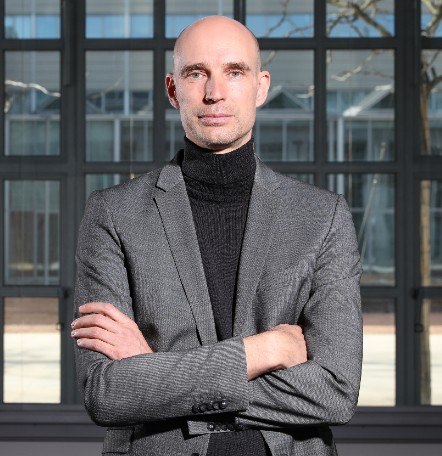
Olaf Blanke
Bertarelli Foundation Chair in Cognitive Neuroprosthetics Center for Neuroprosthetics & Brain-Mind Institute Swiss Federal Institute of Technology (EPFL), Campus Biotech, Geneva, Switzerland
Olaf Blanke is Bertarelli Foundation Chair of Cognitive Neuroprosthetics at the Swiss Federal Institute of Technology (EPFL), where he directs the Laboratory of Cognitive Neuroscience at Geneva's Campus Biotech. He founded and directed EPFL’s Center for Neuroprosthetics and is Adjunct Professor at Geneva University Hospital. Blanke’s research focuses on the neuroscience of consciousness and embodiment, human augmentation and personalized medicine. Blanke pioneered robotics and virtual reality technology in neuroscience of consciousness studies and cognitive psychology. His medical-translational activities are dedicated to preventive, diagnostic and therapeutic procedures and devices in neurodegenerative disorders (Parkinson’s disease, Dementia), mental health and well-being. Blanke is co-founder of Metaphysiks Engineering and member of the board of Mindmaze.
Integrity at stake

Emily Cross
Professor of Social Robotics, University of Glasgow, and Professor of Human Neuroscience, Macquarie University), member of the UNESCO International Bioethics Committee (IBC), Australia
Emily is a cognitive and social neuroscientist who directs the Social Brain in Action research laboratory, based jointly at the Institute of Neuroscience and Psychology at the University of Glasgow (Scotland), and the Department of Cognitive Science at Macquarie University (Australia). Using intensive training procedures, functional neuroimaging, brain stimulation, and research paradigms involving dance, acrobatics and robots, she leads a team who explores questions concerning how we learn via observation, motor expertise, and social influences on human-robot interaction. She and her team are particularly interested in how prolonged experience with robots changes how we perceive and interact with these artificial agents at brain and behavioural levels, and how these relationships are manifest across the lifespan and in different cultures. Her current work is funded by the ERC Starting Grant project ‘Social Robots’. Emily received a BA in psychology and dance from Pomona College (USA), an MSc in cognitive psychology from the University of Otago (NZ) as a Fulbright Fellow, and a PhD in cognitive neuroscience from Dartmouth College (USA). She completed postdoctoral training at the University of Nottingham (UK) and the Max Planck Institute for Human Cognitive and Brain Sciences (Germany), and was previously an assistant professor at Radboud University Nijmegen (NL) and a professor at Bangor University (Wales). Her research has been funded by an eclectic mix of national and international organisations, including the NIH (USA), the Netherlands Organisation for Scientific Research, the Economic and Social Research Council (UK), the Ministry of Defence (UK), the Leverhulme Trust (UK) and the European Research Council.
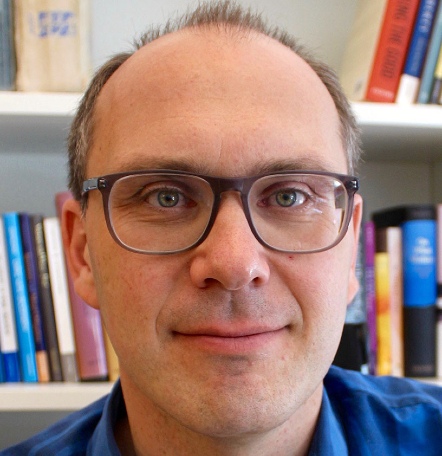
Jakob Elster
Associate Professor Norwegian Centre for Human Rights, University of Oslo
Jakob Elster obtained his PhD in philosophy from the University of Oslo in 2007, with the thesis Transforming Moral Motivation. After his PhD, Elster has worked as research school coordinator at the Ethics Programme, University of Oslo (2007-2008), postdoctoral researcher at the Ethics Programme and at the Department of Philosophy, Classics, History of art and Ideas (IFIKK), University of Oslo (2008-2011) and senior adviser at the Regional Committees for Medical and Health Research Ethics (REC) South-East Norway (2011-2016). Since 2016, Elster has been Associate Professor at the Norwegian Centre for Human Rights at the University of Oslo. Elster is currently a group leader of the project What is a Good Policy? Political Morality, Feasibility, and Democracy (GOODPOL) at the Centre for Advanced Study at the Norwegian Academy of Science and Letters.

Judy Illes
UBC Distinguished University Scholar, Professor of Neurology, and Director, Neuroethics, Canada
Dr. Illes is Professor of Neurology at the University of British Columbia (UBC), UBC Distinguished University Scholar, Director of Neuroethics Canada. She is also faculty in the Centre for Brain Health, the School of Population and Public Health, and in Journalism at UBC, and in the Department of Computer Science and Engineering at the University of Washington, Seattle, USA. Dr. Illes received her PhD in Hearing and Speech Sciences, and in Neuropsychology at Stanford University.
Dr. Illes is a pioneer of the field of neuroethics through which she has made groundbreaking contributions to ethical, legal, social and policy challenges at the intersection of the brain sciences and biomedical ethics. Among her many international commitments, today she serves as co-Lead of the Canadian Brain Research Strategy, affiliated with the International Brain Initiative, Vice Chair of the Advisory Board of the Institute for Neuroscience, Mental Health and Addiction of the Canadian Institutes of Health Research, Director-at-Large of the Canadian Academy of Health Sciences, a member of the Ethics Law and Humanities Committee of the American Academy of Neurology, and a member of the GESDA Task Force on neurorights.
Dr. Illes was awarded the Order of Canada, the country’s highest recognition of its citizens, in 2017.
Freedom at stake
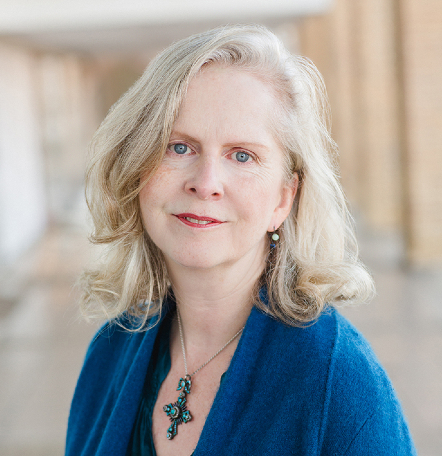
Susie Alegre
International Human Rights Barrister, Associate, Doughty Street Chambers, UK
Susie Alegre is a specialist in international human rights law and public international law with over twenty years experience working on human rights and the rule of law in the EU, OSCE, Council of Europe and UN Systems. She is a barrister and associate tenant at Doughty Street Chambers, an associate of the Policy Practice, and a Research Fellow at the University of Roehampton. Since 2017, she has had a focus on digital rights, including, in particular, the right to freedom of thought for which she received a grant from the Digital Freedom Fund to explore the potential for strategic litigation based in this right. Her work on digital rights has included work for 5Rights on Child Online Safety, on Disinformation for Avaaz and Sum of Us as well as work on human rights and technology for the UN and the OSCE. She has published and spoken widely on these topics and her book, Freedom to Think: The Long Struggle to Liberate our Minds, is due out in April 2022. She is Interception of Communications Commissioner for the Isle of Man and in the UK she has worked as an ombudsman at the Financial Ombudsman Service deciding cases on discrimination and vulnerable consumers as well as fin-tech and she is a Deputy High Court Judge. Internationally, her roles have included working as the Attache on Accountability and Governance for the EU in Uganda coordinating donor responses to corruption in the country and Anti-Terrorism Adviser to the OSCE ODIHR. She is a Senior Research Fellow at the University of Roehampton. Susie has a Masters in French and Philosophy from the University of Edinburgh and a Masters in International Human Rights Law from the University of Nantes.
Website: www.susiealegre.com
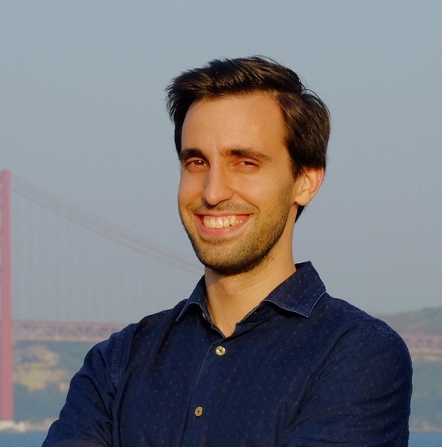
Miguel Cabral
Public Health Medical Doctor, Public Health Unit of Maia/Valongo, Portugal
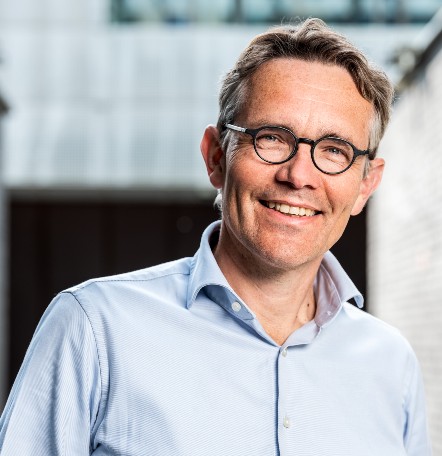
Pieter Roelfsema
Director of the Netherlands Institute for Neuroscience in Amsterdam
Pieter R. Roelfsema received his MD degree in 1991 and his PhD degree in 1995. He moved to the Netherlands Institute for Neuroscience in Amsterdam in 2002 and became director in 2007. He is professor at the Free University of Amsterdam and at the AUMC in Amsterdam. He received a NWO-VICI award (2008) and an ERC-Advanced grant (2014). Roelfsema studies visual perception, plasticity and memory in the visual system of experimental animals, humans, and with neural networks. His main question is how neurons in different brain areas work together during seeing and thinking. Roelfsema studies how networks of neurons work together to perceive and solve cognitive tasks and how they configure themselves during learning. He develops the neurotechnology for high-bandwidth visual prostheses for blind people, aiming to restore a rudimentary form of sight. Roelfsema coordinates the Dutch neurotechnology initiative NeuroTech-NL.
Non-Discrimination at stake

Nita A. Farahany
Robinson O. Everett Distinguished Professor of Law & Philosophy and Founding Director of the Duke Initiative for Science & Society, USA
Nita A. Farahany is the Robinson O. Everett Distinguished Professor of Law & Philosophy and Founding Director of the Duke Initiative for Science & Society. From 2010-2017, she served as a Commissioner on the U.S. Presidential Commission for the Study of Bioethical Issues. She is a widely published scholar on the ethical, legal, and social implications of the biosciences and emerging technologies, and a frequent commentator for national media and radio shows, and at major event conferences including the Aspen Ideas Festival, TED, the World Economic Forum, and judicial conferences. Farahany is an elected member of the American Law Institute, an elected fellow of the American Association for the Advancement of Science, a member of the World Economic Forum Global Future Council on Frontier Risks, President and Board member of the International Neuroethics Society, serves on scientific and ethics advisory boards, is a member of the Neuroethics Division of the BRAIN Initiative for NIH, an appointed member of the National Advisory Council of NINDS, and the Neuroforum at the National Academies of Science. She is a co-editor-in-chief and a founding editor of the Journal of Law and the Biosciences. Farahany holds an AB (Genetics) from Dartmouth College, an ALM (Biology) from Harvard University, and a JD, MA, and Ph.D. (Philosophy) from Duke University.
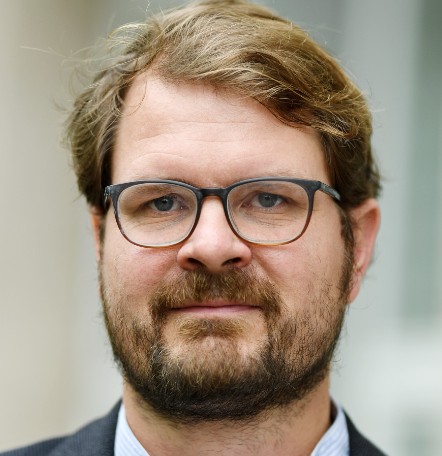
Philipp Kellmeyer
Neurologist, Head of the Neuroethics and AI Ethics Lab, University Medical Center Freiburg, Germany
Biographical note: Dr. Kellmeyer is a neurologist at the University Medical Center Freiburg where he heads the Neuroethics and AI Ethics Lab at the Department of Neurosurgery. He studied human medicine in Heidelberg and Zurich and received a Master of Philosophy from the University of Cambridge (GB). As a neuroscientist he works in the fields of neuroimaging and translational neurotechnology, in particular the clinical application of deep-learning-based brain-computer interfaces. He is a scientific member of the BrainLinks-BrainTools cluster of excellence at the University of Freiburg and Research Fellow at the Freiburg Institute for Advanced Studies (FRIAS) in the “Responsible Artificial Intelligence” research group. In his research at the intersection of neuroethics, digital ethics and AI ethics, he works on ethical, legal, social and political challenges of human-technology interaction, particularly regarding neurotechnology, big data, artificial intelligence and XR technologies in medicine and biomedical research. He is also an affiliate researcher of the Institute for Biomedical Ethics and History of Medicine at the University of Zurich, where he teaches biomedical ethics. Since November 2020, he is a member of the Board of Directors of the International Neuroethics Society (INS).
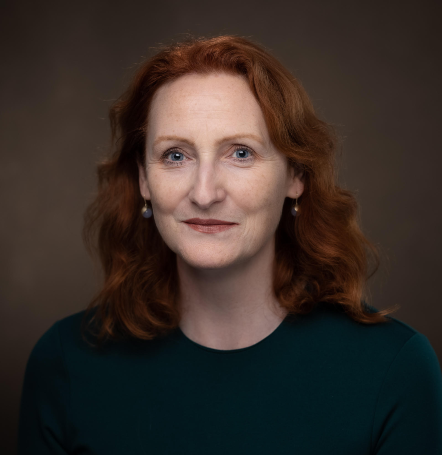
Siobhan O'Sullivan
Vice-Chair of the DH-BIO, general rapporteur
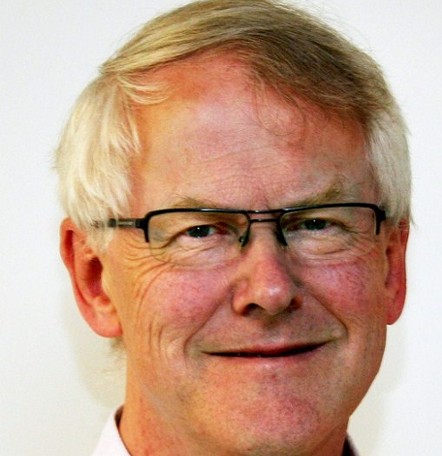
Morten Ruud
Chair of the Steering Committee for Human Rights (CDDH), Council of Europe
Morten Ruud is chairperson of the Council of Europe Steering Committee for Human Rights (CDDH). He is a Norwegian lawyer who has had most of his professional career in the Norwegian Ministry of Justice, including twelve years as Secretary General. He was Governor of Svalbard from 1998 to 2001. After retiring from civil service in 2020, he is now a guest researcher at PluriCourts, a center for study of the legitimate roles of the judiciary in the global order at the University of Oslo. He has participated in a number of international conferences in the Council of Europe, UN, IMO, Arctic Council and the Antarctic Treaty Consultative Meetings. He took part in the drafting of the Additional Protocols to the Geneva Conventions on Humanitarian Law, and in the UN Convention against torture. He chaired the committee that drafted Protocol 11 to the European Convention on Human Rights on the merger of the Commission and the Court. He has published ten books (in Norwegian) on issues as international law, humanitarian law, human rights and international cooperation in criminal matters.

Paula Martinho da Silva
Member of the UNESCO International Bioethics Committee (IBC)
Paula Martinho da Silva
Born in Santarém, Portugal. Lives in Lisbon.
Lawyer since 1984.
- Law Degree, Faculty of Law, Classic University of Lisbon
- Master in Bioethics, Faculty of Medicine, Complutense University of Madrid
- Practising lawyer (since 1984) expertise on intellectual property and life sciences
Since 1986, when she published her first book - "The Artificial Procreation - Legal Aspects" began to specialize in Life Sciences, and later, in 1997 published the annotation to the Council of Europe Convention on Human Rights and Biomedicine.
Paula is also co-author of the book “Lei da Procriação Medicamente Assistida Anotada”, about the assisted reproduction legislation in Portugal.
Actually, Paula is member of the
- UNESCO IBC (International Bioethics Committee)
- Scientific Committee of SIBI (Socied Internacional de Bioética)
- Collaborates with the Council of Europe as an international expert
is also member of the Ethics Committees of
- Champalimaud Foundation
- Centro Hospitalar de Lisboa Central
- Societal Advisory Board of IMM (Molecular Medicine Institute);
- Ethics Council of Universidade Nova de Lisboa
She has played several positions in the area of Life Sciences such as:
- Chair of the National Council of Ethics for the Life Sciences - CNECV (2003 – 2009), and member (1991-2003).
- Chair of the Ethics Council of José de Mello Saúde
- Vice Chair of the European Group of Ethics in Science and new Technologies of the EU Commission - EGE (2004-2010).
- Member of the EGE - European Group of Ethics in Science and New Technologies of the EU Commission 1998-2000; 2005-2010; 2011- 2016
- Member of the COMETH Bureau (European Conference of the National Councils of Ethics, Council of Europe (2003-2005, 2005- 2007 and 2007-2010).
- Member of ORBEA (Animal Well-Being Committee) at the Faculty of Sciences, Lisbon University;
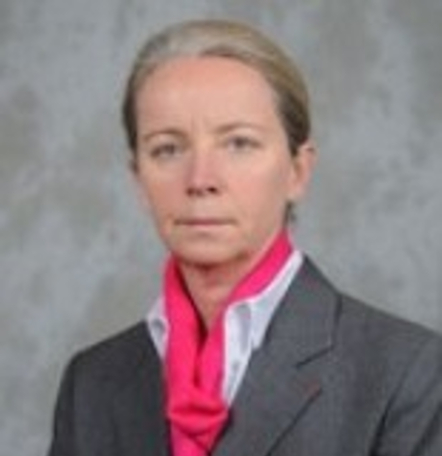
Françoise Roure
Chair, Working Party on Biotechnology, Nanotechnology and Converging Technologies, OECD Chair, Committee Security, Safety and Risks, Ministy of Economy and Finance, France
Françoise Roure obtained two PhDs with accreditation to supervise research from the University of Paris-1 Pantheon-Sorbonne in Economics (International and Industrial), in 1981 and 1983. She specialized in public policies related to emerging technologies including ICTs and energies at the european and international, intergovernmental levels. She has been active in the fields of intergovernmental dialogues on Nanoscale technologies and novel materials development, ICTs, space and immersive technologies, industrial Synthetic Biology, Ethics, responsible research, innovation and investment in Emerging, Converging and Enabling Technologies, their risks and opportunities. She chaired the former OECD Nanotechnology working party and is the chairperson of the OECD BNCT WP. She published and co-authored a special edition on Neurotechnologies and Responsible innovation in Annales des mines in August 2021 and is a permanent member of the French Task Force focusing on the implemention of OECD recommendation n°0457 on Neurotechnologies and responsible innovation.
Dr. Roure has been member of the High Level expert Group of the European Commission in charge of the Next Technology Wave 2020, whose report on Converging Technologies for a diverse Europe (CTEKs) was an answer to the US-NSF report on NBIC for Human Enhancement. She has joined the World Economic Forum’s Meta-Council on Emerging Technologies in charge of identifying impact of advanced technologies and their innovative combination for a more inclusive and sustainable world. She is the president of the Ethics and Compliance Committee of the French Institute for Radioprotection and Nuclear Safety (CED-IRSN). She is member of the Board of the French Agency for Food, Environmental and Occupational Health & Safety as the representative of the minister in charge of Industry
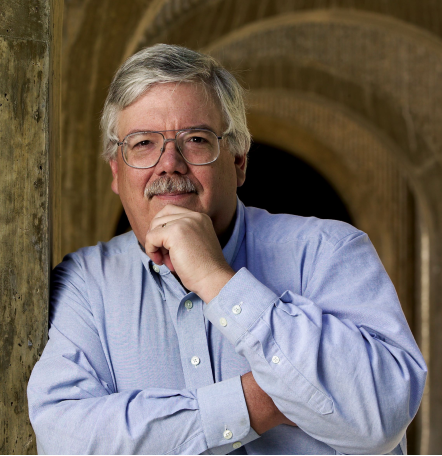
Henry T. Greely
Professor by courtesy of Genetics, Stanford School of Medicine; Director, Center for Law and the Biosciences; Director, Stanford Program in Neuroscience and Society; and Chair, Steering Committee of the Center for Biomedical Ethics USA
Henry T. (Hank) Greely is the Deane F. and Kate Edelman Johnson Professor of Law; Professor, by courtesy, of Genetics; and Director of the Center for Law and the Biosciences at Stanford University. He specializes in ethical, legal, and social issues arising from the biosciences. He is a founder and immediate past President of the International Neuroethics Society; chairs the California Advisory Committee on Human Stem Cell Research; chairs the Ethical, Legal, and Social Issues Committee of the Earth BioGenome Project; and serves on the NIH BRAIN Initiative’s Multi-Council Working Group while co-chairing the Initiative’s Neuroethics Work Group. He is the author of The End of Sex and the Future of Human Reproduction (Harv. Univ. Press 2016) and CRISPR People: The Science and Ethics of Editing Humans (MIT Press 2021).
Professor Greely graduated from Stanford in 1974 and Yale Law School in 1977. He served as a law clerk for Judge John Minor Wisdom on the United States Court of Appeals for the Fifth Circuit and Justice Potter Stewart of the United States Supreme Court. After working during the Carter Administration in the Departments of Defense and Energy, he entered private law practice in Los Angeles in 1981. He joined the Stanford faculty in 1985.
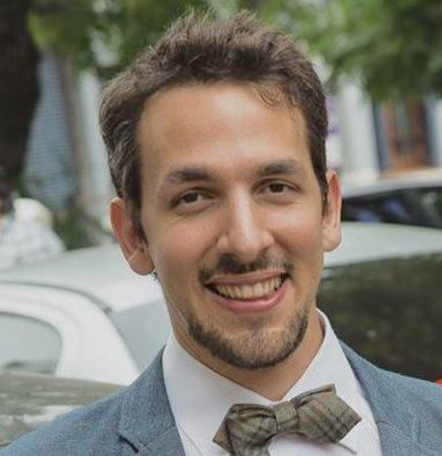
Abel Wajnerman Paz
Professor and Director of the Neuroethics Group, Department of Philosophy, Alberto Hurtado University, Santiago, Chile
Abel Wajnerman Paz obtained his PhD in philosophy at the University of Buenos Aires, Argentina (2015), with a CONICET fellowship (2010-2015). He was a postdoctoral fellow at CONICET (Argentina, 2015-2017) and FONDECYT (Chile, 2018-2021). He is currently a professor and director of the Neuroethics Group of the Department of Philosophy at Alberto Hurtado University in Santiago de Chile, Chile.
His main areas of interest are the Philosophy of Cognitive Neuroscience and Neuroethics. He focuses on epistemic and conceptual issues related to perception, thought and consciousness and their neuroethical implications regarding mental privacy, personal identity, psychological integrity, and autonomy.
He advises on these ethical issues for governmental bodies, such as the Commission on Future, Science, Technology, Knowledge and Innovation of the Chamber of Deputies of Chile and the Commission on Challenges of the Future, Science, Technology and Innovation of the Senate of Chile.










